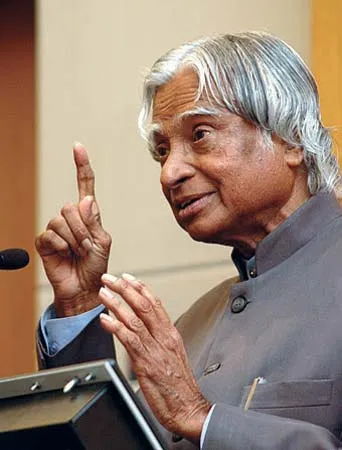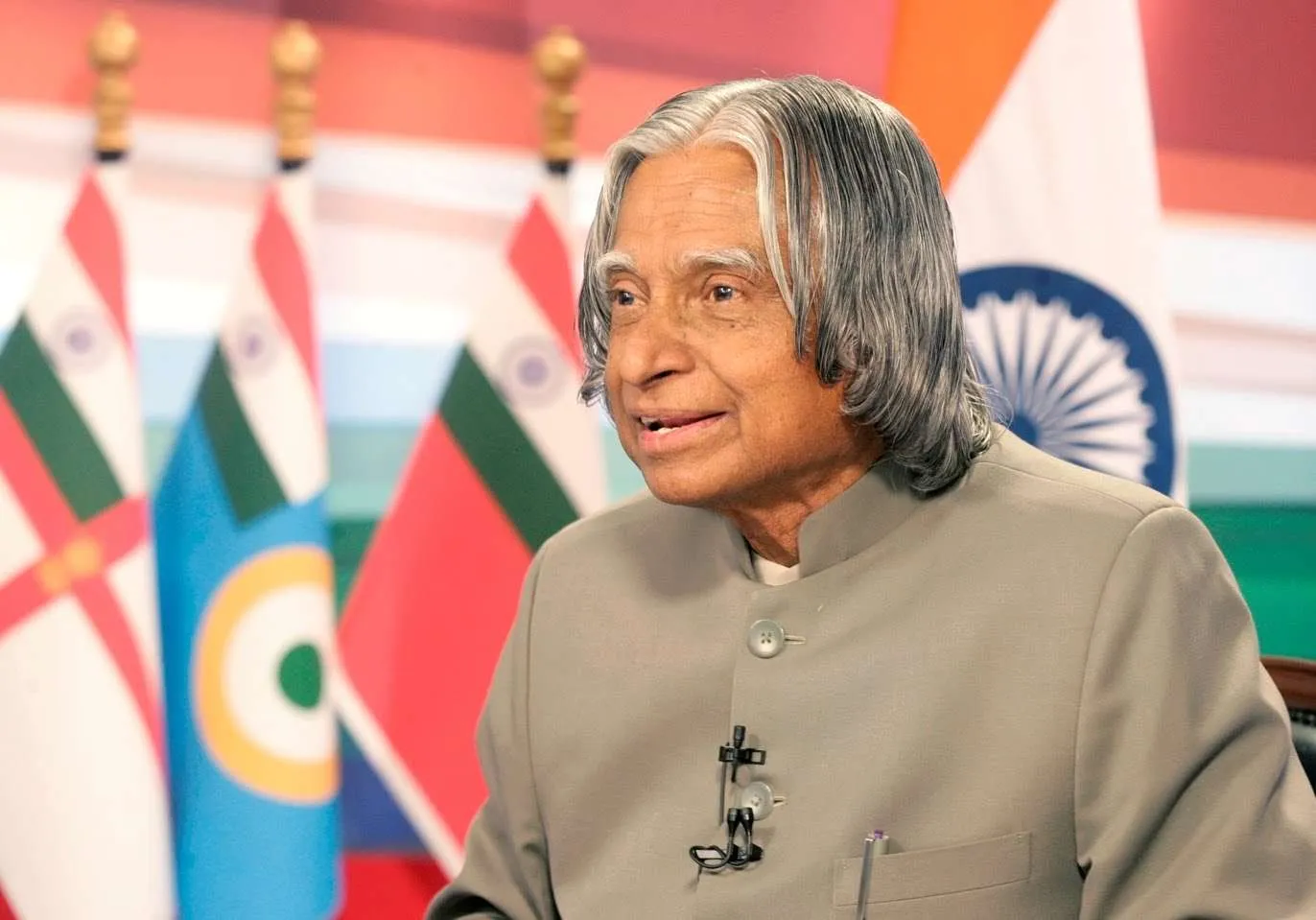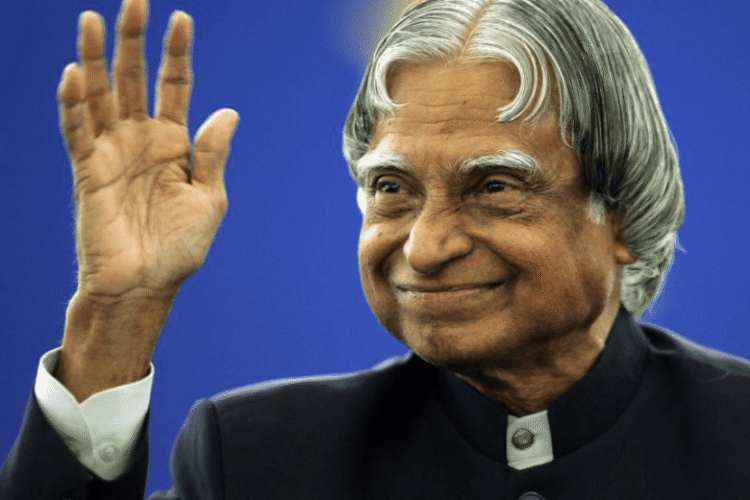Avul Pakir Jainulabdeen Abdul Kalam, full name of Dr. Abdul Kalam. This scientist was born on October 15, 1931, and sadly passed away on July 27, 2015. He was an Indian aerospace scientist and politician who served as the 11th President of India from 2002 to 2007. He was born and raised in Rameswaram, Tamil Nadu. Dr. Kalam had done his research in physics and aerospace engineering.
He spent the next four decades as a scientist and science administrator, primarily at the Defense Research and Development Organization (DRDO) and The Indian Space Research Organization (ISRO), and was closely involved in India’s civilian space program and military missile development efforts. He was therefore known as the Missile Man of India for his work in developing ballistic missile technology and launchers.

Dr. Kalam’s Childhood
Dr. Kalam belongs to a Tamil Muslim family from the pilgrimage center of Rameswaram on Pamban Island, then under the Madras Presidency, and now in the state of Tamil Nadu. His father, Jainulabdeen Marakayar, was a boat owner and imam of a local mosque, and his mother, Ashiamma, was a housewife. His father owned a ferry that carried Hindu pilgrims between Rameswaram and Dhanushkodi, which is currently uninhabited. Dr. Kalam is the youngest child in a family of four brothers and one sister.
During his school years, Dr. Kalam had average grades but was described as an intelligent, hard-working student with a high spirit of learning. He spent many hours studying, especially mathematics. After completing his studies at Schwartz High School, Ramanathapuram, Dr. Kalam studied at St. Joseph’s College, Tiruchirappalli, and later affiliated with the University of Madras, from where he graduated in physics in 1954. Then, he moved to Madras in 1955 to study aerospace engineering at the Madras Institute of Technology.

Dr. Kalam as a President
Dr. Kalam is the 11th president of India. He won the 2002 presidential election with 922,884 electoral votes. His term lasted from July 25, 2002 to July 25, 2007. During his term as president, he was affectionately known as the “People’s President”, saying that the signing of the Office Bill Profitability was the hardest decision he made.
Dr. Kalam has been criticized for inaction in deciding the fate of 20 out of 21 clemency petitions submitted to him during his tenure. At the end of his term on 20 June 2007, the former president expressed his willingness to consider a second term provided he was certain of winning the 2007 presidential election. However, two days later, he decided not to participate in the presidential election, saying he wanted to avoid involving in any political process.
Dr. Kalam as a Scientist
After graduating from the Madras Institute of Technology in 1960, Dr. Kalam joined the Aeronautical Development Agency of the Defense Research and Development Organization as a scientist after becoming a member of DRDS. He started his career by designing a small seaplane, but was not convicted with his job choice at DRDO. Then Dr. Kalam joined the INCOSPAR. In 1969, he moved to the Indian Space Research Organization (ISRO), where he was the project director of India’s first satellite launch vehicle (SLV-3), which successfully deployed the Rohini satellite in 1969. From 1963 to 1964, Dr. Kalam visited NASA’s Langley Research Center in Hampton while in between 1970s and 1990s, he worked on developing the Polar Satellite Launch Vehicle (PSLV) and SLV-3 projects, both of which proved successfully.

On July 2015, Dr. Kalam visited Shillong to deliver a lecture at the Indian Institute of Management, Shilllong. While climbing the stairs, he felt a little uncomfortable but was able to enter the auditorium after resting for awhile . After five minutes of lecture, he collapsed. He was taken to nearby Bethany Hospital in critical condition. When he arrived, he had no pulse or no sign of life. Despite being admitted to the intensive care unit, Dr. Abdul Kalam was confirmed to have died of sudden cardiac arrest at 7 a.m. His last words to his assistant Srijan Pal Singh, are said to be:
Funny guy! Are you okay?
India reacted to Dr. Kalam’s death with extreme grief. Many tribute was paid to former president across the country and on social media. The Indian Government has declared a seven-day national mourning period as a mark of respect. The Dr. APJ Abdul Kalam National Memorial was built by DRDO in memory of Dr. Kalam at Pei Karumbu in the island town of Rameswaram, Tamil Nadu.
Dr. Kalam is a role model for many young people and we are proud to honor him with or without his presence. Such a good soul deserves to rest comfortably in heaven. We warmly wish Dr. Kalam a happy birthday and let him know that we miss him.
Source: The Economic Times
Follow us on Instagram, Facebook or Telegram for more updates and breaking news.








